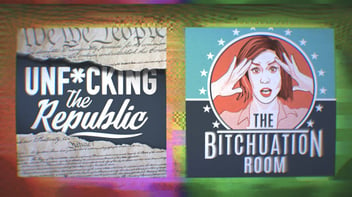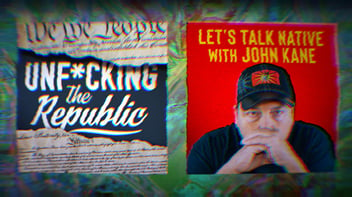Dismantling the Oligarchy.
The Political Class is Intellectually Bankrupt
 Image Description: A wealthy rat king sitting on a throne, surrounded by poor, ‘lesser’ rats.
Image Description: A wealthy rat king sitting on a throne, surrounded by poor, ‘lesser’ rats.
The Puritan settlers to the shores of this continent witnessed the abundance of these lands. The unvarnished expanse, raw and diverse. A temptation like no other. Here in the early modern period, white Europeans set the roots of Renaissance idealism and soaked them with the blood of mercantilism and genocide, setting the stage for the New World to break free of the feudal shackles of monarchical rule. This break delivered the most profound shift in social, economic and political thinking in human history.
To downplay the significance of the United States and the role it played in leading and influencing global systems is childish. The concept of American exceptionalism is not all that far-fetched when it comes to evaluating empires on a historical timeline and scale.
This is an exceptional framework.
There have been larger empires. Periods of ethnic or quasi-nationalistic rule that were geographically more significant and enduring. But none had the power to so meaningfully transform life on this planet through science, technology, military might and political thought. The modern and postmodern periods have been shaped by theorists who fused the democratic principles of the Classical period with innovative economic theories of the Enlightenment.
We take this alchemy for granted today with the cynicism of hindsight. Postmodernism at its core is built on cynicism, irony and nihilism. It’s all critique and no vision. The same can be said of the major political parties that dominate the governing bodies of the major so-called market economies, most notably the United States.
We’re in a protracted period of stasis when the compounding horrors of environmental catastrophe, poverty, disease, inequality, hunger, homelessness and war are sold to us as features of a functioning system rather than the failures they are. The corporate oligarchs who control what we see and the laws that govern us engage in large scale victim shaming, and offer apocryphal stories of class mobility and patriotic servitude that keep us tethered to false notions of political well-being.
Well, all is not well.
The MAGA movement, built on vague pre-industrial shibboleths of puritanism and racial hierarchy, is just the latest incarnation of corporate sociopathy; cut from the cloth of the Know Nothing party, John Birch Society, Tea Party and others. What feels organic and populist is, in reality, designed by corporate masters who unleash upon us mediocre managers of a system that functions for a pitiful few. These rulers and their managers mythologize the nation’s founders and twist their words to fit their perverse ideology by preying on the public’s fear of the other and the loss of something they cannot quite describe; something that never really belonged to them. But there is commonality. Both our democracy and today’s corporate oligarchy are rooted in a wholesale mistrust of the masses. Disdain, really.
“A time came, in the progress of human affairs, when men ceased to think it a necessity of nature that their governors should be an independent power, opposed in interest to themselves. It appeared to them much better than the various magistrates of the State should be their tenants or delegates, revocable at their pleasure. In that way alone, it seemed, could they have complete security that the powers of government would never be abused to their disadvantage. By degrees this new demand for elective and temporary rulers became the prominent object of the exertions of the popular party, wherever any such party existed; and superseded, to a considerable extent, the previous efforts to limit the power of rulers.” -John Stuart Mill, On Liberty
The pitiful few that control the levers of society today, however, are of a different breed than the framers who were imbued with a different purpose. While inspired to harness the abundance of nature and bend it to their will and maintain the authority of the ruling class, they understood the importance of participation and appearance of mobility. That’s not to suggest their grand design wasn’t classist, racist and misogynistic. It was. But the men of this era were concerned with the principles of science and suspicious of rulers and dictators.
The ruling class of today, however, seeks to leverage these gains specifically to attain dictatorial power, albeit behind a labyrinth of shareholder memorandums, indemnity clauses and balance sheets. All for one and none for all is their motto. And they can have it all, so long as they can sell it.
“The moment we no longer have a free press, anything can happen. What makes it possible for a totalitarian or any other dictatorship to rule is that people are not informed; how can you have an opinion if you are not informed? If everybody always lies to you, the consequence is not that you believe the lies, but rather that nobody believes anything any longer. This is because lies, by their very nature, have to be changed, and a lying government has constantly to rewrite its own history. On the receiving end you get not only one lie—a lie which you could go on for the rest of your days—but you get a great number of lies, depending on how the political wind blows. And a people that no longer can believe anything cannot make up its mind. It is deprived not only of its capacity to act but also of its capacity to think and to judge. And with such a people you can then do what you please.” -Hannah Arendt
Technology has enhanced the methods and amount of communication delivery systems that wash over us like a tidal wave.
Network television, streaming services, podcasts, online video platforms, social media, traditional media. Billions of bits and bytes packing the public square, a cacophonous swirl of opinions and insults. Like a never-ending din of an orchestra tuning. This revolution has at once connected us and driven us apart. So consumed are we with collecting that which confirms our individual biases, straining to hear the one instrument in the symphony, that we simply cannot allow for countervailing narratives that challenge our assumptions.
The very same outlets responsible for disseminating information lack the exact rigor required to sort, deconstruct and analyze. That’s not their role anyway. They perform a critical function that supports shareholder interests and advertisers, not the interests of the citizenry. Even member-funded outlets realize the only way to remain competitive in this landscape is to lean into the salacious or slanted. Their job is to release your endorphins, to squeeze your adrenaline.
Oh, the rush of it all.
There to feed on this anger and loathing is a political party devoid of morality. Republicans offer no apologies for the master they serve, and this alone makes them the more honest party. The loyal Democratic opposition likewise knows their part and plays it well.
The lesser evil party.
Those values you cherish.
We have lip service in spades.
The donor class has orchestrated this masquerade of choice so perfectly, they’re reviving their most successful performance with Trump v. Biden. And why not? The last run of this show was a resounding success.
Since the last go around, the corporate rulers have siphoned the vast majority of the wealth we created for them. They’ve sheltered an additional $1 trillion in offshore havens. Further relaxed financial regulations. Cajoled their hand picked judiciary to eviscerate our rights and keep us distracted and in check.
Feckless bureaucrats do their bidding with alacrity. Even the brightest among them are so consumed with bending a knee and begging for donations, they have precious little time to legislate or generate original thought. If the greatest innovation of our democracy was the introduction of temporary rule, then the greatest accomplishment of the modern donor class is the reversal of it. There’s a million dollar cover charge for the general admission club and a ten million dollar fee to enter the VIP room. Failure to comply with club rules can lead to your dismissal at any time. It’s little wonder why the least intelligent, most outrageous and highly funded pawns receive the greatest amount of airtime. The oligarchs control both the candidate and the air.
In a properly functioning system, the cream, as they say, rises to the top. But so does oil.
Not to say there’s a lack of intellect. Rather, a lack of intellectualism. There are plenty of highly intelligent and capable people in the political apparatus, most of whom are caught in the byzantine web of bureaucracy and shifting winds of political sentiment. Forced to spend their time wooing donors who flood the field with money and instructions.
Money in politics isn’t a design flaw. It’s just a design.
There was a time when architects were in charge of the design. True that many were the wealthiest citizens, but at a certain level politics was a calling and a discipline. Perhaps the show horses have always been empty vessels; but the work horses, those who fought to build a system to support our growth demonstrated flashes of legislative and political brilliance. True masters of the discipline. A professional political class. Different than the bare-knuckle barn brawlers of local politics, a tawdry and lurid vocation if ever there was one. I’m talking about scholarly and laudable figures who built things and broke things in the pursuit of equity.
Peter Thiel, billionaire co-founder of PayPal, quipped in an interview with the Hoover Institution that political science and climate science aren’t science at all. “If something is real science, you don’t need to call it science. It’s physics and chemistry. It’s not physical science or chemical science.” It’s a clever, but empty, sentiment that scores points with anyone unwilling to challenge a billionaire, let alone a conservative institution.
The study of climate is indeed a science. But I’ll give him half-credit regarding politics. Politics is both art and science, and there are precious few in the United States with the vision and willingness to practice in the manner in which it deserves. Scholars invoke the words of prominent intellectuals throughout history who viewed their skill in the arts and sciences as worthy of contributions to the social sciences, which includes politics.
I would argue that political science is the preeminent science that sets us more apart from the animal kingdom than any other discipline. The political science we require at this stage of human development, the next great intellectual frontier, is one that incorporates the needs of the masses and the planet that feeds us. What Ludwig von Bertalanffy termed a General System Theory. He recognized that systems of various orders are, “not understandable by investigation of their respective parts in isolation.”
A holistic approach is required to fundamentally alter the dystopian course we have charted that preserves and maintains the status quo of ruling elites. We can no longer afford the luxury of political science in isolation without recognizing the effects of our politics on morality, on health, food supply and the natural world.
Recently, the left-wing government in Chile took the revolutionary step to nationalize lithium production to stop the overdevelopment of mining practices that are harming the environment. In Brazil, Lula da Silva has made preserving the Amazon Rainforest the centerpiece of his administration. Leaders of these nations came to power not in spite of such initiatives, but due to them.
Nationalizing harmful industrial practices is hardly an innovative concept, but it’s entirely anathema to the toxic culture of consumption and destruction characterized by our politics. The very introduction of such a benign concept is political suicide. We are the lone holdout among industrialized nations in offering universal healthcare to our citizens because we need them to struggle. To be distracted. Stressed. Unhealthy.
The boldest initiatives we have to promote are the “more-of-the-same” concepts designed by industrialists and funded by our unlimited supply of fiat currency printed by the hand selected bureaucrats and circulated back into the pockets of those who select them. A virtuous cycle for the ruling class, a vicious one for the rest of us.
Bold new ideas that incorporate System Theory thinking into our politics are made impossible by two factors. One is the temporary nature of our political apparatus, the very innovation that made us so exceptional. It precludes beneficial and generational policy making. The other is money.
The former is a condemnation of the very principle that allowed for democracy to flourish and break us from the bonds of monarchical authoritarianism. It’s heretical, and even dangerous, to suggest its demise. But set against the perils of a future we are wholly unprepared for, it’s difficult to imagine anything other than a benevolent dictatorship lifting the yoke of the monied class.
And yet, because we have a proven history of this experiment going terribly wrong in the modern era, it would be foolish to suggest this as a path forward. This leaves the latter as the only plausible path to salvation. Just as affirmative action cannot cure racism, SNAP benefits cannot cure hunger, electric vehicles won’t save the planet, student debt relief cannot fix the education system, the child tax credit won’t cure child poverty, universal insurance access is not the same as universal healthcare coverage, farm subsidies don’t alleviate droughts, abortion pills aren’t the same as reproductive rights…and so on.
We’re taking sides and arguing our positions because they want us to. Because it distracts from bigger thinking. From viewing these issues as interrelated and interdependent. From building on the innovation of temporary governance to sustainable progress. Progressives fight to make gains, Republicans, to take them away. Democrats seek to hold whatever is in place. Only when zooming out do you begin to recognize the artificial and choreographed nature of it all. The din of the tuning symphony causes disorder in our brains and keeps us focused on the instrument that matters to us out of psychological preservation. The very same sound is music to the ears of the ruling class; the symphony itself.
Nationalizing the fossil fuel industry is required to save the planet.
Severely restricting industrial protein manufacturing is as well.
Demilitarizing the world begins with shuttering the hundreds of military installations we maintain abroad.
Breaking up monopolies in food and agriculture will reduce the cost of core consumer goods.
Breaking up media and tech monopolies will stem the tide of misinformation.
Providing free education, universal healthcare, dignified retirements. These are all within reach. All financially possible and even fiscally responsible.
Whatever your raison d’être—that one instrument, the single note most important to you—it will remain unattainable so long as we don’t recognize the interdependence of the factors that contribute to society, culture, environment, politics and socioeconomics. Recognizing a general system theory that delivers us from the nihilism of postmodernism requires an intellectual political class. And none of this is possible so long as the ruling class holds the purse strings and determines the entrance fee to this twisted game.
The beginning of a solution to the complexities that plague us is the elimination of money from our politics. We must remember that even the great thinkers that formed the political institution that is the United States did so to preserve the opulent minority from the tyranny of the masses. Therefore, I would argue that publicly funded elections is the first and only step that we can take as a society to move forward as a species and create, for the first time, an authentic, functioning and representative democracy.
“So long as men remained content with their rustic huts, so long as they were satisfied with clothes made of the skins of animals and sewn together with thorns and fishbones, adorned themselves only with feathers and shells, and continued to paint their bodies different colours, to improve and beautify their bows and arrows and to make with sharp-edged stones fishing boats or clumsy musical instruments; in a word, so long as they undertook only what a single person could accomplish, and confined themselves to such arts as did not require the joint labour of several hands, they lived free, healthy, honest and happy lives, so long as their nature allowed, and as they continued to enjoy the pleasures of mutual and independent intercourse. But from the moment one man began to stand in need of the help of another; from the moment it appeared advantageous to any one man to have enough provisions for two, equality disappeared, property was introduced, work became indispensable, and vast forests became smiling fields, which man had to water with the sweat of his brow, and where slavery and misery were soon seen to germinate and grow up with the crops.” -Jean-Jacques Rousseau, The Social Contract
Max is a political commentator and essayist who focuses on the intersection of American socioeconomic theory and politics in the modern era. He is the publisher of UNFTR Media and host of the popular Unf*cking the Republic® podcast and YouTube channel. Prior to founding UNFTR, Max spent fifteen years as a publisher and columnist in the alternative newsweekly industry and a decade in terrestrial radio. Max is also a regular contributor to the MeidasTouch Network where he covers the U.S. economy.


